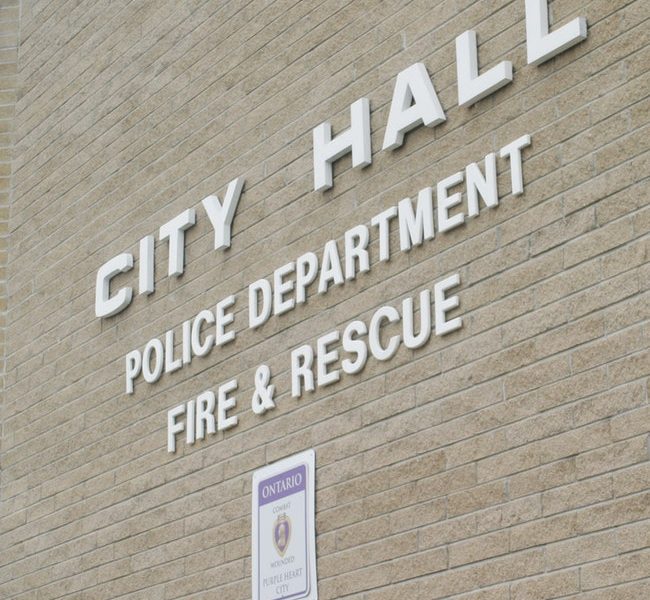 Ontario City Hall
Ontario City Hall
ONTARIO – City elected leaders want the state to change the formula for how much money Ontario receives from marijuana sales.
City officials requested “immediate intervention” to amend the formula in a Jan. 9 letter to the House Interim Committee on Revenue, Gov. Kate Brown, Sen. Peter Courtney (D-Salem), Sen. Lynn Findley (R-Vale) and House Speaker Rep. Tina Kotek (D-Portland).
“The city is totally getting shanked,” said Adam Brown, Ontario city manager.
Marijuana is big business in Ontario, generating more than $3.2 million a month in revenue, or about $105,000 a day. The marijuana business translates into about 500 trips a day – mostly from Idaho – into the city, said Brown.
[ KEEP YOUR LOCAL NEWS STRONG – SUBSCRIBE ]
Ontario voters allowed recreational marijuana dispensaries in November 2018. State voters approved retail marijuana sales in 2014. The first dispensaries in Ontario opened in July 2019.
Tax revenue from marijuana sales is divided in several ways.
First, the state collects a 17% tax on marijuana sales. Ontario also levies a 3% tax on marijuana sales for its general fund. That money, said Brown, is used for capital improvements and to pay down the city’s Public Employee Retirement System debt.
The state returns 10% of the tax it collects to cities. The 10% formula is based on population and the number of marijuana dispensaries licensed by the city. The money from the 10% share must be used for public safety, said Brown.
City leaders want the state to change the formula to one based on total sales.
“A formula that does not even consider the sales volume for the area in which product is purchased is hugely disadvantageous and damaging for Ontario,” said the city letter. “This is prejudicial to communities like ours that are located next to a major metropolitan area, Boise, Idaho, without access to legal cannabis.
“We do not believe Ontario’s location was carefully considered when coming up with the distribution formula.”
A chart in the letter showed Ontario should receive $653,490 from the state marijuana tax but instead will actually get $49,700.
“We always say we are one of the poorest counties and we are always asking for help and here is something we produce and the state takes most of it,” said Dan Capron, Ontario City Council president. “The state isn’t giving us our fair shake.”
Brown said the city wasn’t sure exactly how much money it would receive as part of the state revenue-sharing package but expected more than $49,700.
The city budgeted “conservatively,” said Brown.
“We budgeted $250,000 and we were going to hire two new cops and that money isn’t going to be there now,” said Brown.
Brown said Ontario is essentially sending money to other towns in Oregon.
“That doesn’t make sense for our demographic or our needs,” said Brown.
Reporter Pat Caldwell: [email protected] or 541-473-3377.
For the latest news, follow the Enterprise on Facebook and Twitter.
SUBSCRIBE TO HELP PRODUCE VITAL REPORTING — For $5 a month, you get breaking news alerts, emailed newsletters and around-the-clock access to our stories. We depend on subscribers to pay for in-depth, accurate news produced by a professional and highly trained staff. Help us grow and get better with your subscription. Sign up HERE.




